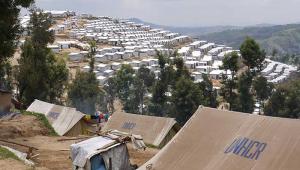Following a visit to the country, Tsidi Tsikata, head of the IMF team, said lower copper prices, electricity shortages and poor rainfall have exacerbated problems from rising inflation, mounting expenditure pressures and tightening financing conditions.
“Government finances are under immense stress,” he said. “Expenditure is running far above budget, in large part as a result of fuel subsidies and contracted emergency electricity imports that together are estimated to cost the treasury about $660m a year at the current pace (equivalent to 3.2% of gross domestic product).”
He noted that, at the same time, domestic and external financing options are becoming more limited along with rising interest rates. Domestic arrears are mounting, promoting concerns around debt sustainability in the southern African country.
Over the past decade or so, a steep increase in copper prices helped Zambia enjoy a period of rapid economic growth.
Zambia, Africa’s second-largest copper producer, is dependent on production of the metal, which contributes an average of 11% to the country’s GDP.
But across 2014/15, a crippling power crisis has led to reduced production and tumbling commodity prices have also taken their toll.
Zambia’s currency, the Kwacha, has also plunged 41% against the US dollar and both the deficit and public debt are rising. The latter now stands at around 40% of GDP.
In September last year, international credit rating agency Moody’s downgraded the country’s credit rating, prompting a backlash from Zambia’s finance ministry.
The IMF said tightening monetary policy has been effective at stabilising the exchange rate, but there is little scope to loosen this unless financial imbalances are addressed.
The Zambian government has stressed that, notwithstanding the upcoming general elections, it is committed to addressing budgetary pressures.
This will include a move to cost-reflective energy pricing and a scaling back on unnecessary spending while safeguarding social protections.
Tsikata said a package of measures that clearly tackles the current fiscal pressures would boost market confidence and pave the way for increased investment and growth. However, he warned that delays in implementing corrective measures would “worsen the situation, increase the adjustment cost and postpone the recovery”.
“Resolute action is needed as quickly as possible to restore macroeconomic stability and pave the way for a return to high sustained growth,” he said.













